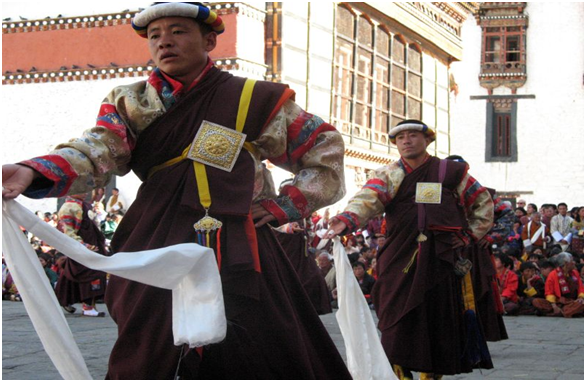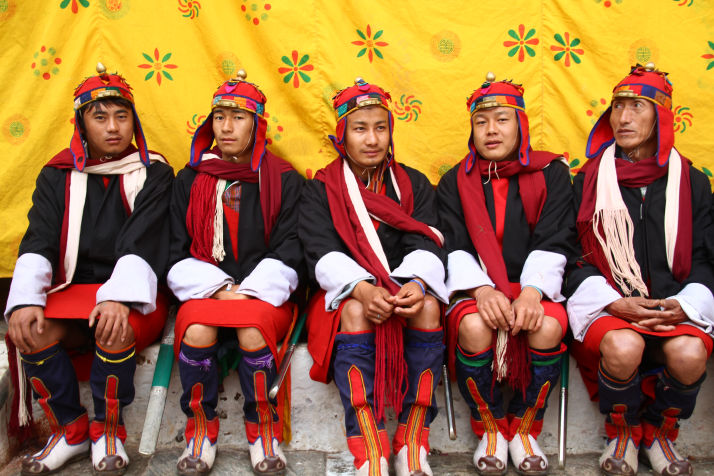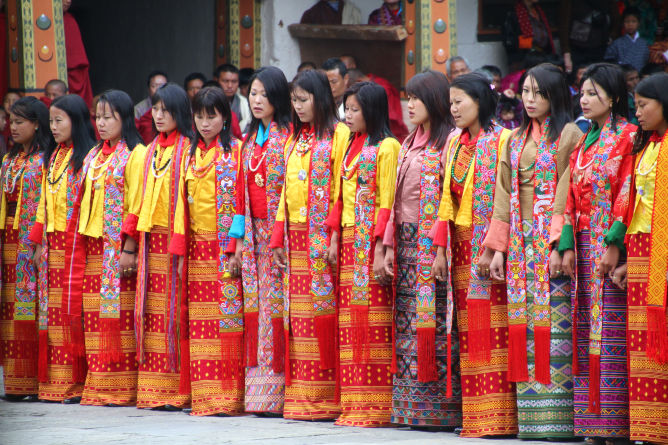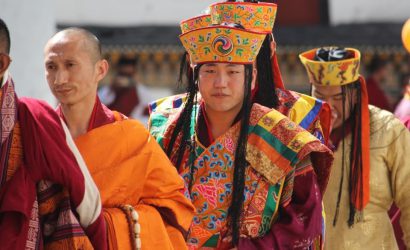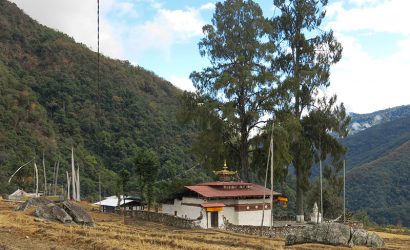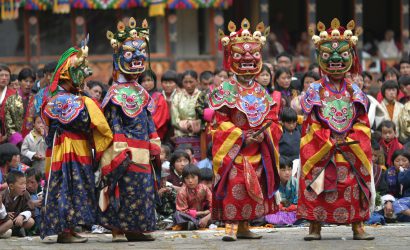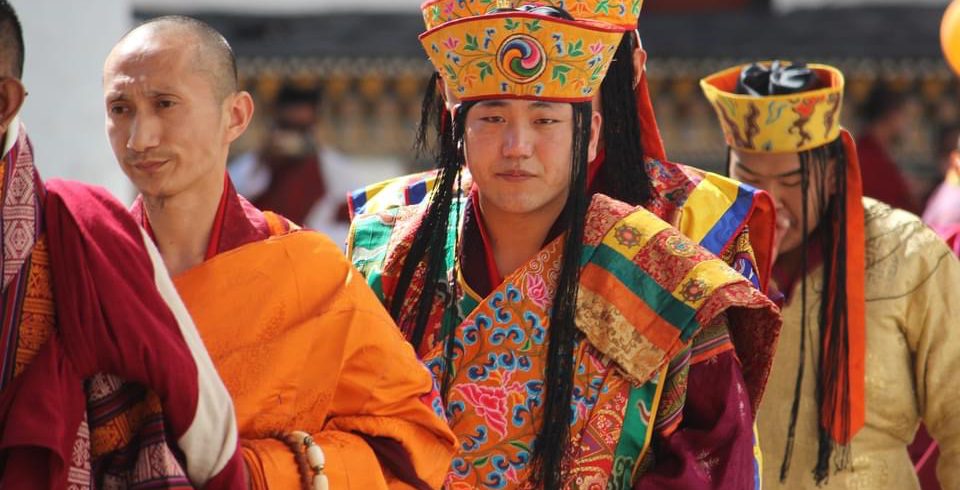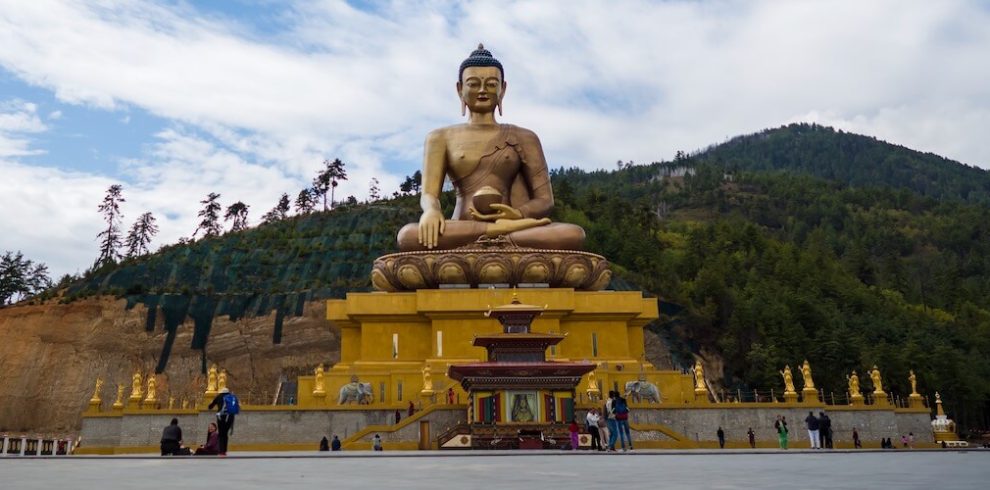-
11 Feb 21 Feb
-
18
-
80
Overview
Punakha Tshechu or Punakha Festival is an annual festival which is held at courtyard of the Punakha Dzong in Punakha district. It is 3 days long festival which begin on 10th day of 1st month of Buddhist lunar calendar. Tshechu means “tenth” and all the Tshechu will begin on 10th day of any month of Buddhist lunar calendar because on 10th day it is widely celebrate as Birth Anniversary of Guru Rinpoche, who is popularly refers as “Second Buddha”
Highlights
- Discover some of the most sacred Buddhist monasteries and temples in the Himalaya.
- View sacred dances and rituals performed by monks and laymen in elaborate costumes.
- Experience Bhutan’s unique culture up-close with farmhouse visits and village excursions
- Witness the unfurling ceremony of the sacred ‘thongdroel’ scroll at daybreak.
- Join in with locals in a special occasion of celebration, blessings and socializing.
- Visit many cultural attractions including medieval fortresses (Dzongs), markets and museums.
- Hike up to the famous Taktsang Monastery, perched on a cliff 900m above the valley floor.
- Marvel at the elaborate and ancient wall paintings and carvings in Dzongs and temples.
- Drive over high mountain passes affording sensational views of the Himalayan peaks.
- Traverse beautiful landscapes from lush valleys to dense forests.
Itinerary
Inclusion and Exclusion
What is included
- Private guided tour
- Visas for Bhutan
- Airport transfers
- Daily 3 meals (B/L/D)
- Accommodation
- A qualified & licensed English-speaking guide
- An experienced driver
- A tour vehicle
- Entry fees & road permits
- Government fee, royalty, taxes & surcharges
- Mineral bottled water
- Laundry service on a daily basis
- Full service & assistance before, during and after your Bhutan trip
What's Excluded
- Flight into Bhutan (can be arranged with us)
- Flight on other airline to catch Drukair Flight
- Meals at 4-5 stars restaurants
- Hotel stay outside of Bhutan
- Expenditure of personal nature
- Travel Insurance (can be arranged with us)
- Tips for the guide and driver
- Alcoholic drink
- Special Offer :
- Do you have a group of 10 or more? You may qualify for a special group rate. Allow us to make sure your group travels happy and confidently.
FAQs
If you plan to travel to Bhutan, you must work with a local travel agent. Then, once you have chosen a local outfitter to handle your trip and selected a date, they will work with you to plan out a comprehensive itinerary of the things you want to do. There will be a guide along for the entire trip. There will be no problem adding anything not on your itinerary by your guide.
Visitors of all nationalities, except those from India, require a visa before entering Bhutan. For all visitors, except those from Bangladesh and the Maldives, this visa must be applied for and approved in advance of travel. Visitors from Bangladesh and the Maldives also require a visa, but this can be applied for and approved either in advance of travel or upon arrival in Bhutan.
Visitors from India are able to apply for a permit but are required to hold an Indian passport or an Indian voter ID card. For Indian nationals under the age of 18, a passport or a birth certificate can be used to enter and they must be accompanied by a legal guardian.
Nationals from Switzerland and Thailand holding diplomatic or government-official passports are eligible for a visa at their port of entry.
All 3 meals per day, all taxes and surcharges, entries into point of interest, daily mineral water, a guide, a driver and a car. Most aspects of your travel have been covered except for shopping and alcoholic drinks.
Yes, 3 stars hotels are included in the package. However you can upgrade to 4 and 5 star hotels
Bhutan’s currency is called ngultrum. It’s 1:1 with Indian rupees.
Three different electrical plugs are used throughout Bhutan: the British plug (three square pins, compatible with type G sockets), the European plug (two round pins, compatible with type C socket) and the Indian plug (three thick round pins, compatible with type D sockets). It’s a good idea to bring adaptors for all three.
For telephone calls, Bhutan’s country code is +975. Make sure you add this to the beginning of any number if calling Bhutan from abroad.
Yes. All visitors must have full, valid travel insurance for the duration of their visit. For all visitors except those from India, Bangladesh and the Maldives, it is required to be in place when you make your visa application.
Visitors from India, Bangladesh and the Maldives have the option to purchase domestic travel insurance at their port of entry.
Bhutan is a very safe place to visit, even if you’re travelling alone. There is very little crime experienced by locals or visitors, although we advise you to take care of yourself and your belongings. In some areas you may encounter stray dogs – please be cautious around them as they are not domesticated. They normally keep their distance, but please stay away from them as much as possible, especially if travelling with children. Please don’t feed or pat these or any other wild animals.
Bhutan’s physical environment presents occasional safety hazards, including flooding and landslides. From June to September the monsoons can affect transport and services. Check with your hotel or tour operator for possible disruptions.

